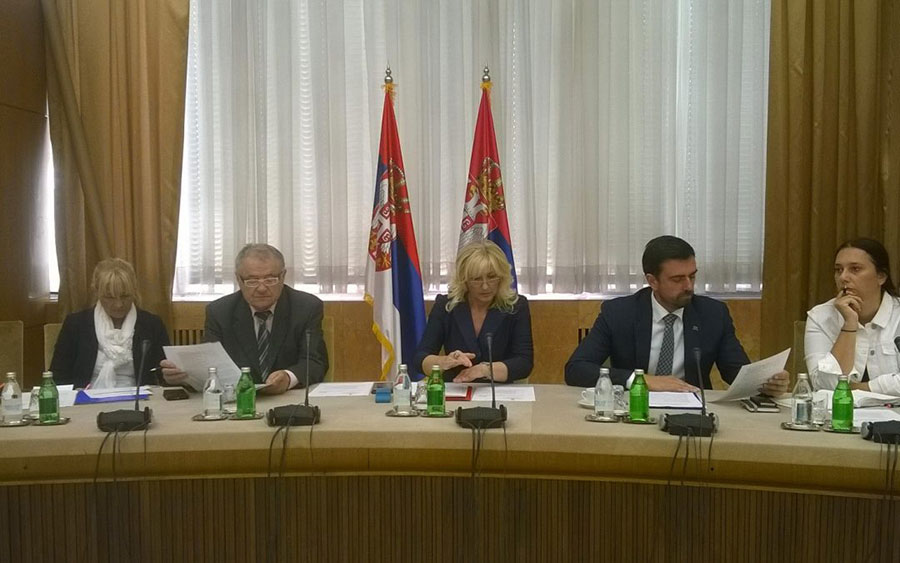The first meeting of the Inter-ministerial Working Group for Establishment and Implementation of National Framework of Qualifications took place at the Palace of Serbia and was participated in by Vesna Mandic Assistant to the Minister in charge of development and higher education and Steffen Hudolin of the EU Delegation to Serbia as well as 46 delegates from 21 institutions recognised as important social partners.
In his opening remarks, Hudolin said that human capital was among the key resources of economic and social development of the country and recalled that “the EU has invested over EUR75 million in education in Serbia since 2003” with “as many as EUR25 million invested in acquiring the best competences through updated curricula, professional development of teachers and purchase of equipment for schools and faculties.”
He said that key European and national documents envisaged introduction of a system of National Framework of Qualifications as a structural reform of the highest priority, a precondition to setting up a modern, relevant and flexible education system, adding that the EU had allocated significant amount of money for the period 2017-2020 to support the establishment of legislative and institutional framework necessary to implement the NFQ.
“The system deals with education-labour market needs mismatch and lays the foundation for further development of the concept of lifelong learning, taking into account the increasing need for flexibility when it comes to changing jobs and careers or acquiring new skills,” Hudolin explained.
He said that, with EU support, the Republic of Serbia had defined its key priorities, adding that the Union will support the implementation of said priorities in the period from 2017-2020, including adoption of the Law on the National Framework of Qualifications, establishment of sectorial councils, development of sector profiles (to gain insight into the state of play in each sector), development of social partnerships, introduction of tools for recognition of previous education as well as referencing with European Framework of Qualifications and comparability of qualifications.
“This is a key moment to consolidate efforts put in the establishment of the NFQ system designed to bring education closer to the labour market and introduce more efficient mechanisms to match supply of and need for skills,” Hudolin said.
Assistant to the Minister for Development and Higher Education Vesna Mandic said that “the Government agenda sets the establishment of the NFQ at the top of its priorities. The NFQ has unfortunately been under development for the past decade, but now, thanks to Minister Sarcevic’s decision, an Inter-ministerial Working Group has been set up, comprised of 21 institutions with 46 highly competent members.”
She underlined that linking the NFQ with the European Framework of Qualifications would pose a serious challenge. Once established, she said, such a connection will enable comparability between the two systems which will in turn boost the mobility of workforce in the European market.




